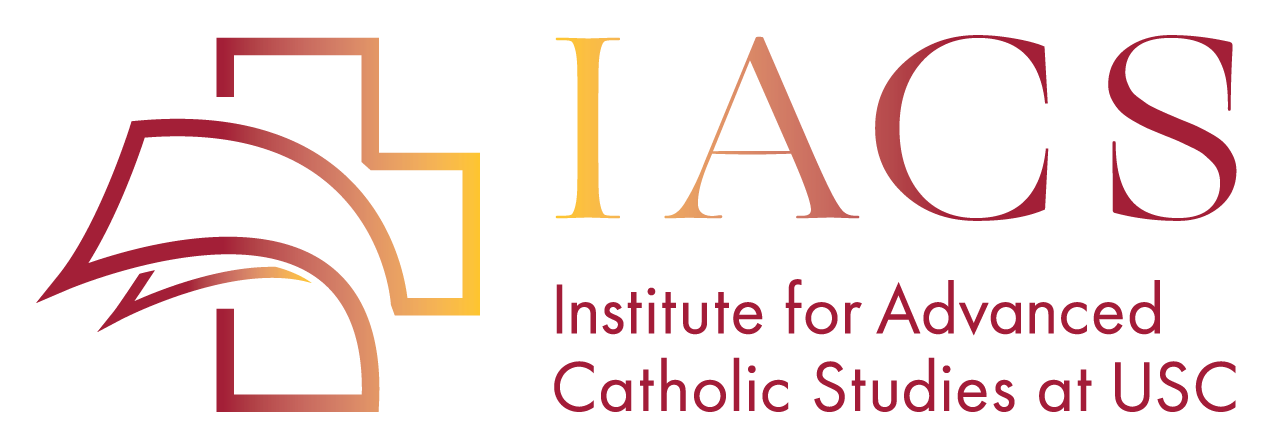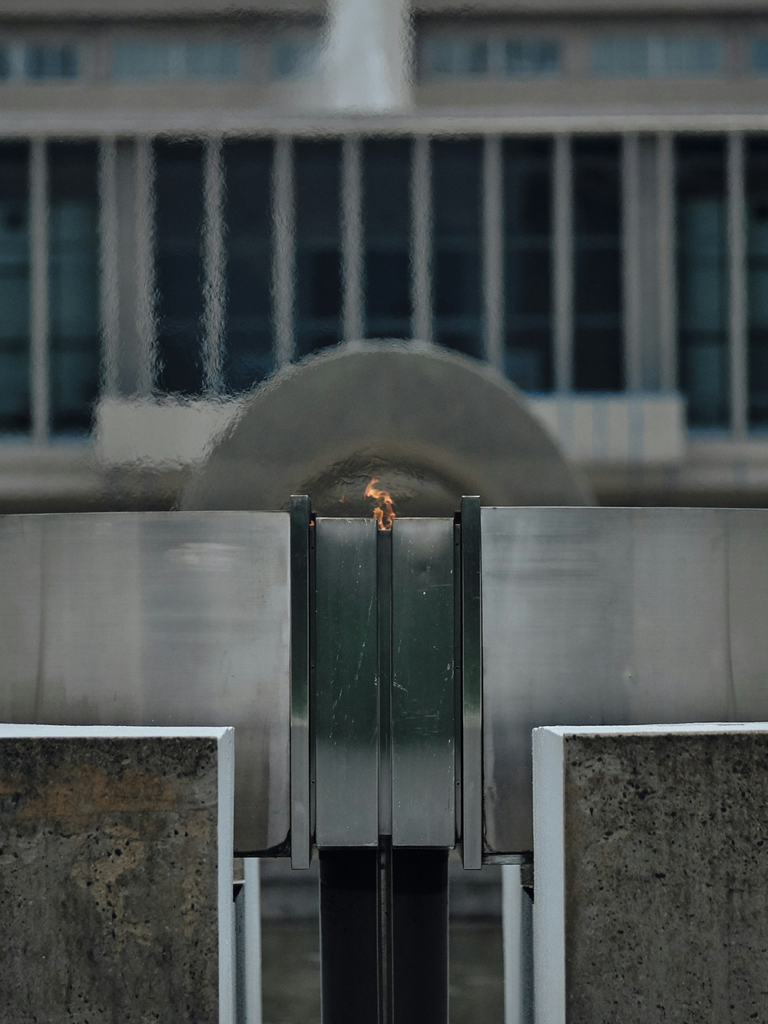


A project from the Institute for Advanced Catholic Studies at USC, the Endowed Chair of Roman Catholic Studies at the University of New Mexico, and UNM’s Religious Studies Program
Forum on Nuclear Strategy: Disarmament & Deterrence in a Dangerous World
Saturday, September 7, 2024 at the University of New Mexico
Watch a recording of the forum
We are closer to nuclear conflict than at any time since the end of the Cold War.
This project explores one of the urgent but undebated issues of our time: The reality that the geo-political rivalry between the U.S., a rising China, and revanchist Russia threatens to break out in nuclear war—a scenario made more urgent by the rise of cyberwarfare, hypersonic weapons, and the new potential for AI-generated cyberweapons to take control of the nuclear strike capacities of competing nations. Recent media reports argue that nuclear conflict “is more likely now than at any other time since the Cold War.”
These dynamics have led multiple countries (including the U.S.) to implement massive “modernization” and expansion of their nuclear war-fighting capacity. This nuclear deterrence approach dominates modern strategic nuclear thinking (except among minority nuclear strategists contemplating actual first use of nuclear weapons). Meanwhile, through the last four decades some nuclear strategists — in part prompted by the American Catholic bishops’ 1983 pastoral letter The Challenge of Peace — have argued that the only rational and ethical response to these realities is multilateral and verifiable nuclear arms control and disarmament. More recently, Pope St. John Paul II, Pope Benedict XVI, and Pope Francis have all endorsed something approximating the latter approach, in the service of both peace and integral human development among broader sectors of human society. But other nuclear strategists, including those informing U.S. policy (more briefly here), argue that deterrence of adversaries via a strong nuclear weapons profile is the rational and ethical response to the above realities.
Archbishop John C. Wester of the Archdiocese of Santa Fe and Albuquerque issued in 2022 Living in the Light of Christ’s Peace: A conversation towards nuclear disarmament. This pastoral letter built on the above legacy to renew calls for multilateral and verifiable nuclear disarmament worldwide. Archbishop Wester received subsequent public support from other bishops around the world, and along with the bishops of Seattle, Hiroshima, and Nagasaki co-led a 2023 pilgrimage to Hiroshima and Nagasaki reinforcing the call. Noteworthy, of course, is that these voices represent dioceses in New Mexico (home to two both Sandia and Los Alamos national laboratories where much of the U.S. nuclear weapons development and production occur); the state of Washington (home to the largest nuclear-armed submarine fleet); and the only cities where nuclear weapons have ever been used.
Yet despite important prior efforts at public dialogue, remarkably little engagement has occurred between the current strategists of nuclear deterrence that set American nuclear policy and the religious/ethical or strategic/political voices calling for mutual and verifiable nuclear disarmament as national policy. The engagement across this divide has had little impact on nuclear strategic thinking. This project will engage contrasting strategic and ethical arguments regarding the best approaches to the new geo-strategic realities of the contemporary world.
On Saturday, September 7, 2024, we will convene the intellectual architects of disarmament and deterrence approaches to nuclear weapons policy from Catholic and secular strategic perspectives to engage in a structured dialogue at the University of Mexico. Due to the sensitivity of the issues to be discussed, the dialogue will not be fully public and will include an expectation that the interlocutors not quote or represent others’ views outside the dialogue setting. However, a closing public forum will invite the participants to reflect on the dialogue, profile their own pre-existing stances and new insights emerging from the conversation, and engage with the broader public both in New Mexico and beyond via livestreaming.
“Forum on Nuclear Strategy: Disarmament & Deterrence in a Dangerous World” is co-sponsored by the University of New Mexico and the Institute for Advanced Catholic Studies at USC.
Why now?
New geo-strategic dynamics have emerged in the world and we must each face the reality that our world could soon be decimated by nuclear war. Even a limited nuclear exchange would likely increase the risk of full nuclear war. We can only assume that such an outcome remains unthinkable via new approaches to nuclear strategy. Perhaps more than any other source, the Catholic ethical tradition in dialogue with secular thinkers and policymakers offers resources for the new thinking required. This effort strives to expand the next stage of that new thinking.
For more information, please contact us at iacs@usc.edu.

Participants:
Out of Town Participants:
Rose Gottemoeller, Former Deputy Secretary General of NATO & former U.S. Under Secretary for Arms Control and International Security
Cardinal Robert McElroy, Ph.D., Bishop of San Diego and Member, Vatican’s Dicastery for Promoting Integral Human Development
Christopher Ford, Ph.D., Former U.S. Assistant Secretary of State for International Security and Nonproliferation
Thomas Countryman, Chairman of the Board, Arms Control Association & former Undersecretary for Arms Control and International Security
Thomas “Thom” Mason, Ph.D., Director, Los Alamos National Laboratory
Siegfried S. Hecker, Ph.D., Former Director, Los Alamos National Laboratory
Matthew Sharp, Ph.D., Director, Office of Multilateral and Nuclear Affairs, U.S. State Department Bureau of Arms Control, Deterrence, and Stability
Most Rev. Joseph Mitsuaki Takami, Archbishop Emeritus of Nagasaki
Most Rev. John C. Wester, Archbishop of Sante Fe
Maryann Cusimano Love, Ph.D., Associate Professor of International Relations, The Catholic University of America
Richard Love, Ph.D., Professor, National Defense University
Gerard Powers, Director, Catholic Peacebuilding Studies at the Kroc Institute for International Peace Studies, Keough School of Global Affairs, University of Notre Dame
Raymond J. Juzaitis, Ph.D., Former Associate Director, Los Alamos National Laboratory & Livermore National Laboratory
Tina Cordova, Co-founder, Tularosa Basin Downwinders Consortium
Jay Coghlan, Executive Director, Nuclear Watch New Mexico
J. Bryan Hehir, Ph.D., Secretary for Health and Social Services, Archdiocese of Boston
Hirokazu Miyazaki, Ph.D., Professor of Anthropology, Northwestern University
Michael C. Desch, Ph.D., Packey J. Dee Professor of International Relations, University of Notre Dame
Hans Kristensen, Director, Nuclear Information Project at the Federation of American Scientists
Ira Helfand, M.D., Steering Group, International Campaign to Abolish Nuclear Weapons
Terri Nelson, Director, Director of Integral Human Development, Archdiocese of Seattle
James O’Sullivan, Ph.D., Associate Professor of Social Ethics, Saint Joseph’s University
Masao Tomonaga, M.D., Ph.D., Vice President, International Physicians for the Prevention of Nuclear War
IACS and Albuquerque Participants:
Amir Mohagheghi, Ph.D., Managing Director of the Cooperative Monitoring Center and Senior Scientist, Sandia National Laboratories
Anne Avellone, LMSW, M.Div., Director, Office of Social Justice and Respect Life, Archdiocese of Santa Fe
Becky King Cerling, Ph.D., Executive Director, Institute for Advanced Catholic Studies at USC
Myrriah Gómez, Ph.D., Associate Professor, Honors College, University of New Mexico
Kathleen Holscher, Ph.D., Endowed Chair of Roman Catholic Studies, Professor, Religious Studies and American Studies, University of New Mexico
Maureen Pecht King, Trustee, Institute for Advanced Catholic Studies at USC
Regis Pecos, Former Governor of Cochiti Pueblo and Co-Founder/Co-Director of the Santa Fe Indian School Leadership Institute
Dan Wolne, Ph.D., Director, Religion Studies Program, University of New Mexico
Richard L. Wood, Ph.D., President, Institute for Advanced Catholic Studies at USC